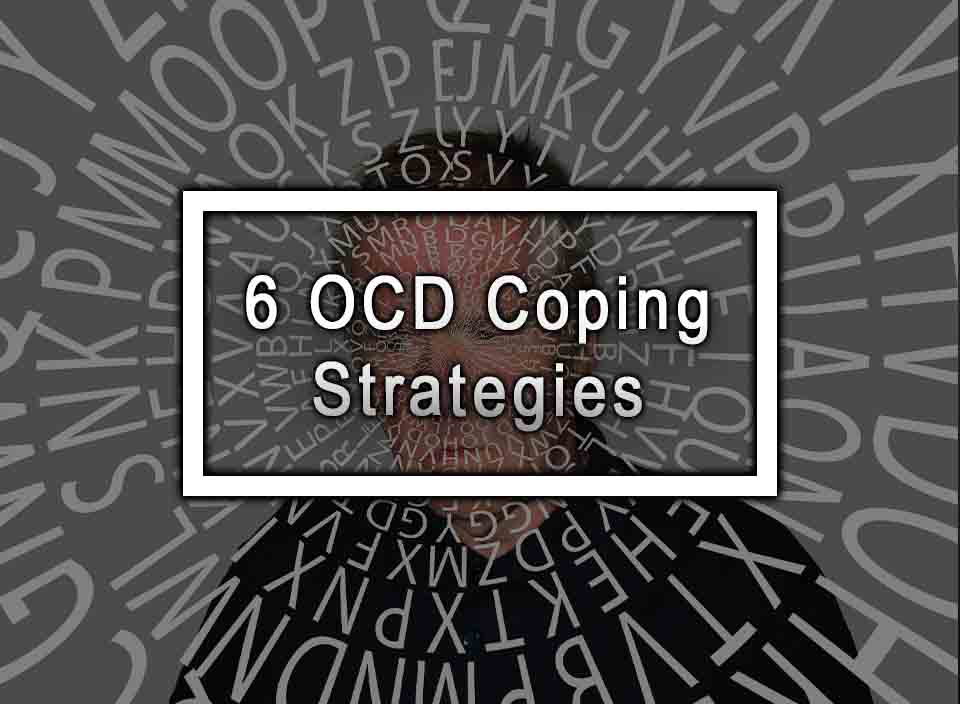Here Are The OCD Coping Strategies
Obsessive-Compulsive Disorder (OCD) is a mental illness that affects millions of people worldwide. It is a condition characterized by uncontrollable, intrusive thoughts and behaviors that can interfere with daily life. The disorder often leads to anxiety, depression, and feelings of isolation. While there is currently no cure for OCD, there are several coping strategies that can help people manage their symptoms and improve their quality of life. In this article, we will explore some of the most effective OCD coping strategies that individuals can use to manage their symptoms and lead fulfilling lives.
Understand your symptoms

The first step in OCD coping strategies is to understand your symptoms. It is essential to recognize the difference between your thoughts and your actions. OCD is characterized by intrusive thoughts that trigger compulsive behaviors. Once you can separate these two, it will be easier to manage your symptoms. You can keep a journal to record your thoughts and feelings, which can help you identify your triggers and develop coping mechanisms.
Seek professional help

OCD is a complex and challenging condition, and it’s essential to seek professional help. One of the OCD coping strategies is to consult a therapist it can help you understand your symptoms and develop a treatment plan that works for you. Cognitive-behavioral therapy (CBT) is the most common treatment for OCD. It involves identifying negative thoughts and behaviors and replacing them with positive ones. The therapy also includes exposure and response prevention (ERP), which involves gradually exposing yourself to your triggers and learning to resist compulsive behaviors.
Practice mindfulness

One of the OCD coping strategies is Mindfulness, it is a practice that involves being present in the moment and being aware of your thoughts and feelings. It can help you manage your symptoms by reducing stress and anxiety. Mindfulness can be practiced through meditation, breathing exercises, or yoga. It is crucial to practice mindfulness regularly to reap the benefits.
Exercise regularly

Exercise is an effective way to manage OCD symptoms. It releases endorphins, which are feel-good hormones that can reduce anxiety and depression. Exercise also helps regulate sleep patterns, which can be disrupted by OCD. Regular exercise can help you feel better physically and mentally. It is essential to find an exercise routine that you enjoy and can stick to.
Develop healthy habits

Developing healthy habits can help you manage OCD symptoms. This includes eating a healthy diet, getting enough sleep, and avoiding alcohol and drugs. These habits can help regulate your moods and give you the energy you need to manage your symptoms. It is essential to prioritize self-care and make time for activities that you enjoy.
Join a support group

Joining a support group can be helpful for people with OCD. It provides a safe space to share your experiences and connect with others who are going through the same thing. Support groups can also provide valuable information and resources for managing your symptoms. It is essential to find a group that suits your needs and feels comfortable for you.
Conclusion
Managing OCD symptoms can be challenging, but with the right OCD coping strategies, it is possible to lead a fulfilling life. It is essential to understand your symptoms, seek professional help, practice mindfulness, exercise regularly, develop healthy habits, and join a support group. These strategies can help reduce anxiety and depression and improve your quality of life. Remember that coping with OCD is a process, and it may take time to find what works for you. Be patient and kind to yourself, and don’t be afraid to ask for help when you need it.
OCD Coping Strategies FAQs
Here are the most common questions about OCD coping strategies.
1. What is exposure and response prevention therapy?
Exposure and response prevention therapy is a type of cognitive-behavioral therapy that involves gradually exposing individuals to feared situations or objects while preventing them from engaging in obsessive or compulsive behaviors. This can help individuals gradually learn to tolerate anxiety and reduce OCD symptoms.
2. Can medication help with OCD?
Yes, medication can help with OCD. Selective serotonin reuptake inhibitors (SSRIs) are commonly prescribed for OCD and can help reduce symptoms by increasing levels of serotonin in the brain.
3. What are some self-care activities that can help with OCD?
Some self-care activities that can help with OCD include exercise, meditation, spending time with loved ones, practicing relaxation techniques, getting enough sleep, and maintaining a healthy diet. It’s also important to avoid alcohol and drugs, which can worsen anxiety and OCD symptoms.
4. What should someone with OCD do if they are experiencing a relapse of symptoms?
If someone with OCD is experiencing a relapse of symptoms, it’s important to seek help from a mental health professional. They can evaluate the severity of the symptoms and develop an appropriate treatment plan, which may involve medication adjustments, therapy, or other interventions. It’s also important to practice self-care and reach out to a support system for additional help and support.
5. What are some relaxation techniques that can be helpful for OCD?
Some relaxation techniques that can be helpful for OCD include deep breathing exercises, progressive muscle relaxation, and guided imagery. These techniques can help manage anxiety and promote relaxation.












